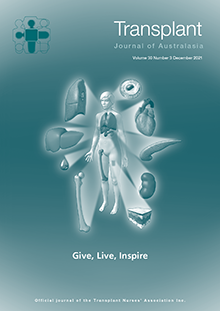Optimising medical and psychosocial patient outcomes is the goal of transplant programs worldwide. This article describes how the solution-focused approach (SFA) has significant potential for improving the psychosocial and behavioural wellbeing of clients by drawing upon their resourcefulness, autonomy and hope. Engaging clients in SFA conversations can improve their wellbeing and significantly reduce the burden on clinicians often associated with helping and problem-solving.
The SFA continues to gain momentum and acclaim worldwide for its sharp effectiveness and applicability to many problem-laden settings, including schools, courtrooms, corrective services, mental health units, hospitals, emergency departments and outpatient clinics. It is used in staff supervision, team-building and coaching. Regardless of the presenting problem, illness, situation or circumstance, the SFA works fast and efficiently. A framework of questions invite the client to consider in detail what they want instead of the problem. A rich description about this preferred future is the key from which a whole new level of conversation and outcome emerges1. Whilst sustained application of the SFA requires rigorous training, practice and discipline, the key concepts can be learnt and applied by all transplant clinicians for use during telehealth or in-person attendance.
The experiences and emotions associated with chronic illness and transplantation can significantly challenge patients and their treating teams; however, the SFA offers highly compassionate support for clients to shift from problem to outcome in a way which is practical, refreshing, sensible and inspirational. More research into the high-level applicability and experience of the SFA specific to pre- and post-transplant populations is recommended.




